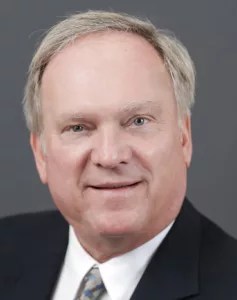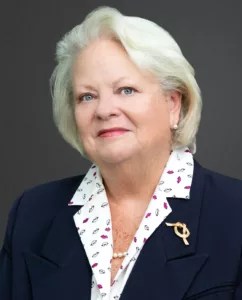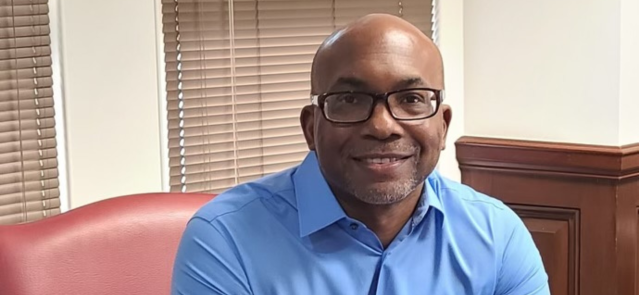Stay ahead of the curve as a political insider with deep policy analysis, daily briefings and policy-shaping tools.
Request a DemoLawmakers eye Medicaid expansion and more mental health services

Fairview Park Hospital in Dublin, Ga. (Credit: Fairview Park Hospital)

In the weeks leading up to the 2024 legislative session that starts Jan. 8, State Affairs is taking a look at key issue areas likely to lead to proposed legislation and vigorous debate at the Statehouse. Our first story focuses on health care-related legislation.
Medicaid expansion tied to more hospital construction?
Georgia’s Republican-controlled Legislature’s stiff resistance to expanding Medicaid coverage for low-income Georgians may be wavering a bit, with the prospect of concessions from lawmakers who want to change how new hospital construction projects are greenlighted.
Georgia is one of 10 states that has not fully expanded Medicaid per the Affordable Care Act. Expansion of the joint federal and state health program could provide health insurance coverage to an additional 450,000 people in the state whose income is at or below 138% of the federal poverty line. Republican lawmakers and Gov. Brian Kemp have long resisted calls to expand the program from Democrats and a wide array of health care advocates, citing the ongoing annual expense (despite a federal match that would cover 90% of the cost), opting instead for a so far unpopular and more limited Medicaid plan that requires recipients to work, volunteer or go to school in order to receive benefits.
But some GOP legislators now seem interested in the cost savings realized by other states that have expanded Medicaid while eliminating Certificate of Need laws, which prevent new medical facilities from being built in certain geographic areas, unless there’s a significant unmet demand for the proposed services.
Georgia has an acute need for more hospitals and medical services in many areas of the state, particularly in rural areas, and CON laws have kept some new facilities from opening.
Last month, a House study committee on modernizing CON laws heard from experts who detailed how states such as North Carolina have repealed Certificate of Need regulations in exchange for expanding Medicaid. Of keen interest to Georgia lawmakers was a presentation by officials in Arkansas who described how they’ve used Medicaid waivers to provide uninsured people with private health insurance, doubling the number of people in the state now covered by Medicaid, and saving the state hundreds of millions of dollars.
At the time, House CON committee member Lee Hawkins, R-Gainesville, said to Arkansas officials, “This sounds incredibly good and sensible.” This week Hawkins, who also chairs the House Health Committee, told State Affairs, “Whether we’ll move in that direction has yet to be decided. We’ve got to have all the final figures on what this will cost the state because you’ve got premium insurance payments that we’ll have to pay for, and we can’t run a deficit. When we do a program like this, it’s not a one-year program. It’s going to go into the future until something else replaces it.”

Hawkins added that he was open to any type of progress in health care that improves access and quality of care and noted that the House isn’t likely to completely eliminate Certificate of Need regulations, one of 28 “options” listed in the committee’s final report.
“We do not need to totally and should not totally repeal CON,” he said. “Because CON means different things in different areas of this state. CON regulations would affect rural hospitals much differently than metropolitan and inner city hospitals. So we’re going to modernize CON regulations.”
The Senate study committee on Certificate of Need Reform did recommend a full repeal of CON in its final report, stating that “the CON process is used by market incumbents to prevent competition and deny patients the benefits therefrom.” If the General Assembly doesn’t agree, the report recommended changes including ending CON requirements for obstetrics services, birth centers, neonatal intensive care units, hospitals, and new inpatient psychiatric services.
Rep. Mary Margaret Oliver, D-Decatur, who is secretary of the House Public Health Committee, told State Affairs she’s “hoping for a serious discussion that gets into the weeds and looks at the math” of repealing or rolling back CON regulations in exchange for expanding Medicaid.

Oliver noted that the Republican leadership in both chambers comes from rural Georgia, “where the health care system is on the brink.” That list includes Rep. Matt Hatchett, R-Dublin, who is chairman of House Appropriations; Rep. Butch Parrish, of Swainsboro and chair of the House CON committee and Sen. Blake Tillery, R-Vidalia; chairman of Senate Appropriations. “These are serious and sophisticated people who know numbers and know the gaps in health care, particularly in rural counties, and they know that their hospitals are teetering,” said Oliver.
Last year HB 38, a bill aimed at expanding Medicaid coverage, didn’t advance out of the House Public Health Committee, and SB 99, a bill that would have exempted most rural hospitals from CON regulations, passed the Senate 42-13, with a strong push from Lt. Gov. Burt Jones, but didn’t move in the House. Both bills or similar legislation coupled together in a ‘Medicaid for CON deal’ are likely to receive renewed attention next year.
Rural Medical Personnel
In an effort to attract more medical school graduates and to retain the existing health care workforce in rural areas, the Senate Rural Medical Personnel study committee recommended expanding the amount and scope of service cancelable loan programs and creating tax incentives for medical professionals who live and work in rural areas.
The committee also proposed amending state law governing certified registered nurse anesthetists to enable them to work autonomously, in part to address the shortage of physician anesthesiologists in rural areas and statewide.
Among the 26 recommendations in its final report, the study committee called for establishing an international medical licensing task force to examine the barriers facing immigrant and refugee health workers, and to identify career and licensure pathways to get foreign-trained medical practitioners who move to Georgia to qualify for the workforce faster.
Mental Health Workforce and Facilities
Several legislators and mental health care advocacy organizations are planning to pursue elements of HB 520, a bill introduced last session that was focused on implementing the expansive Mental Health Parity Act of 2022. HB 520 passed in the House but stalled in the Senate.
Oliver, a co-sponsor of both mental health bills, said her top legislative recommendation for 2024 is “to implement the results of the Medicaid [behavioral] health provider review,” which found that many of Georgia’s providers of mental health and addiction recovery services receive Medicaid reimbursements at rates significantly lower than providers in other states.
“We are so off from both the private market and the other states on what we’re paying our mental health service workers, we have to implement this, in order to build our workforce,” she said, noting that the crisis in staffing beds at state psychiatric hospitals has led to the state paying for beds at private psychiatric hospitals “to the tune of about $40 million a year.”
The Department of Behavioral Health and Developmental Disabilities plans to work with legislators and the governor to “address workforce shortages, expand our continuum of crisis and forensic services and enhance our provider network,” said communications manager Camille Taylor.
Besides “bringing the pay of critical positions closer to market rate,” the department will focus on expanding its crisis bed capacity to meet projected demands for the next decade. Commissioner Kevin Tanner’s amended fiscal year 2024 budget submitted to the governor includes a 3% increase of $44 million to the $1.4 billion in state funds previously approved by Kemp. A bed study commissioned by the Department of Behavioral Health and Developmental Disabilities this year found that it will need to build five new adult behavioral health crisis centers and significantly increase staff salaries at existing centers by 2025, at a cost of $118 million.
Increasing the behavioral health workforce is also a top priority of the National Alliance of Mental Illness – Georgia chapter, which wants to see higher reimbursement rates to attract more providers to health insurance networks, including both private insurers and Medicaid managed care organizations.
“Increasing rates and the number of in-network behavioral health providers are key components to achieving parity with medical providers,” said Kim Jones, executive director of the Georgia chapter. She’d like to see the state provide more “robust oversight and enforcement” of parity requirements, which would help to eliminate existing rate disparities and ensure more Georgians can get appointments with in-network mental health providers.
The National Alliance of Mental Illness is also calling for Georgia to establish and fund a statewide comprehensive screening system for perinatal mood and anxiety disorders to prevent suicides among post-partum women, which is the second leading cause of maternal death in Georgia, according to a recent report.
And, Jones said, her organization will push the Legislature to fund more forensic beds for pre-trial detainees with a history of mental illness who are held in Georgia jails. That includes more than 2,000 people who are currently awaiting evaluations to determine if they’re competent to stand trial, some for months at a time, as well as people who’ve been found to be incompetent and who are in need of mental health restoration services.
Licensing Reform
The Senate Occupational Licensing study committee’s final report recommended expediting the licensing process for advanced practice registered nurses and military medics, and moving toward universal recognition of out-of-state licenses of a variety of skilled professionals, including health care practitioners.
Senators also recommended passing SB 157, which would eliminate barriers to work and create a preclearance process for people with criminal records who apply for licenses from more than 40 state licensing boards, including those regulating health care professions. This would allow applicants to know if they’re going to be allowed to practice before investing years and tens of thousands of dollars into education and training. The bill passed in the Senate unanimously last session but did not get a floor vote in the House.
To address a backlog of license applications and renewals, the committee also recommended “adequately funding” the state boards overseeing nurses and doctors, and to support the funding requests of the Secretary of State’s office, which is currently revamping its web portal for professional licensing.
Read these related stories:
Have questions, comments or tips? Contact Jill Jordan Sieder on X @journalistajill or at [email protected].
And subscribe to State Affairs so you do not miss an update.
X @STATEAFFAIRSGA
Facebook @STATEAFFAIRSGA
Instagram @STATEAFFAIRSGA
LinkedIn @STATEAFFAIRS
Newly minted Senate Minority Leader Harold Jones II: ‘I’m not the typical back-slapping politician’
Nearly 10 years into legislative life, Sen. Harold Jones II wouldn’t change anything about the experience. “I love every minute of it. Even when I hate it, I love it,” the 55-year-old Augusta Democrat told State Affairs. Come January, Jones will add another role to his legislative duties: Senate minority leader, a job held for …
Gov. Kemp calls on state agencies to be fiscally restrained amid record $16.5B surplus
The Gist Gov. Brian Kemp asked the state’s 51 government agencies for continued fiscal restraint when drafting their amended fiscal year 2025 and 2026 budgets. Most agencies adhered to his request even as the state’s general fund surplus hit a record $16.5 billion last month. Forty-five agencies, excluding state courts, followed the governor’s instructions to …
Georgia defies bomb threats as election chief declares a “free, fair and fast” vote amid record turnout
ATLANTA – Despite dealing with over 60 bomb threats, Georgia’s election chief said Tuesday the state’s general election went smoothly. Georgia had a record turnout with nearly 5.3 million people voting, Secretary of State Brad Raffensperger told reporters. Election officials in the state’s 159 counties have until 5 p.m. to certify votes. “We had a …
In the (state)house: Meet the newest members of the Georgia legislature
When lawmakers reconvene at the state Capitol on Jan. 13, there’ll be a cadre of new faces in the 236-member Georgia General Assembly, one of the nation’s largest state legislatures. All 236 statehouse seats were up for election this year. Most candidates ran unopposed. Incumbents in contested races easily kept their seats, with the exception …




